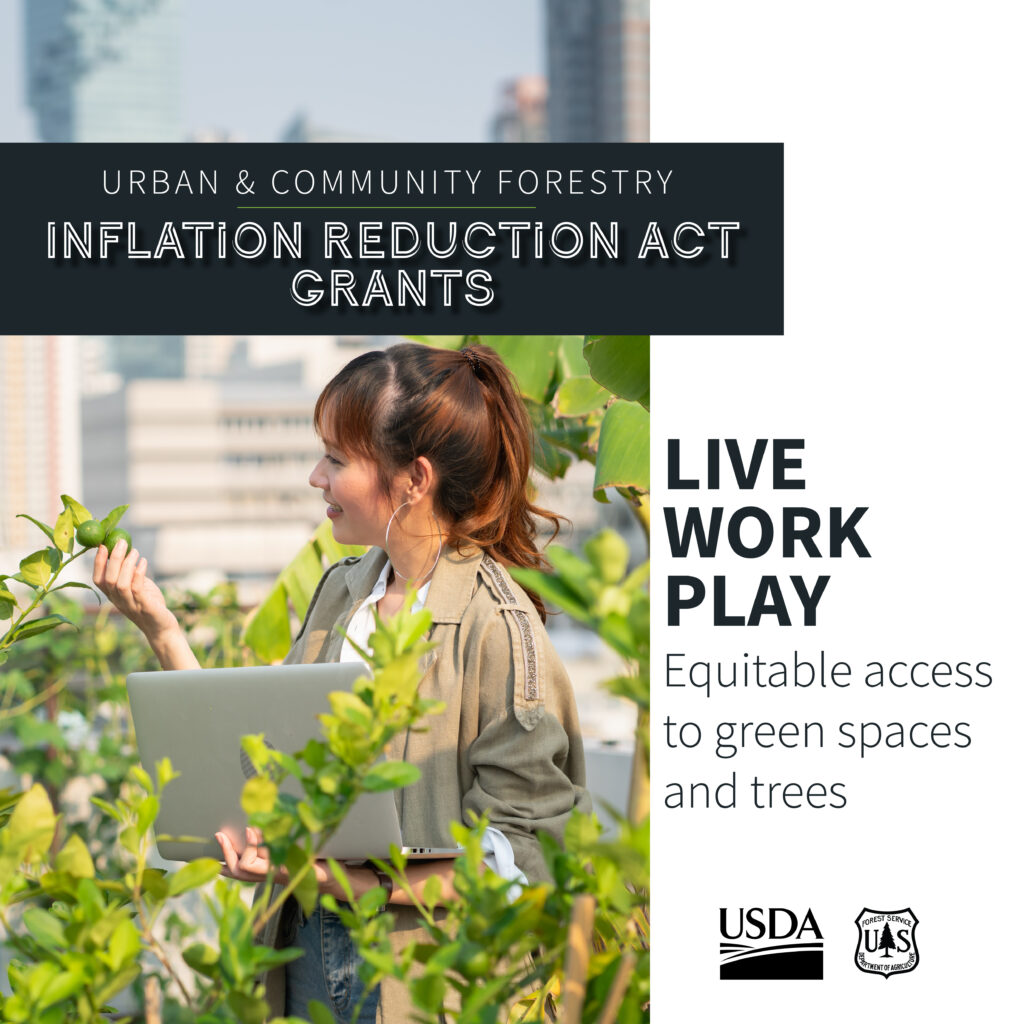Gov. Tony Evers, together with the Wisconsin Department of Natural Resources (DNR) today announced Urban Forestry Grant (UF) recipients, funded through the Biden-Harris Inflation Reduction Act (IRA).
 “Wisconsin’s forests are a critical resource for our state, promoting clean air, preserving natural habitats, and bolstering our statewide economy,” said Gov. Evers. “Thanks to our local and federal partners, these investments help build a stronger, more resilient forestry industry, and will protect our environment and grow our economy for generations to come.”
“Wisconsin’s forests are a critical resource for our state, promoting clean air, preserving natural habitats, and bolstering our statewide economy,” said Gov. Evers. “Thanks to our local and federal partners, these investments help build a stronger, more resilient forestry industry, and will protect our environment and grow our economy for generations to come.”
The funds will go toward work such as removing hazardous trees, increasing the forest canopy through planting, supporting urban forestry workforce development, and using trees to reduce urban heat. Additionally, UF IRA will also help support Wisconsin’s goal of planting 1 million trees in urban areas. The UF IRA Grant program uses federal funds from the USDA Forest Service to support projects that positively impact trees and people within disadvantaged communities in Wisconsin. According to the DNR, a well-managed urban forest increases property values, reduces stormwater runoff and erosion, improves air quality, and reduces energy used for heating and cooling.
Over the last four years, Gov. Evers and the Evers Administration have prioritized strengthening Wisconsin’s forestry industry and promoting forestry across Wisconsin. The 2023-25 budget signed by Gov. Evers made several investments in projects across the state that support the conservation and preservation of the state’s vast and valuable natural resources, including more than $5.6 million for state forests, parks, and riverway road maintenance and development, increased funding for urban forestry grants by $350,000 over the biennium, and $400,000 for county forest administrator grants and $100,000 for county sustainable forestry grants.
Additionally, in April, Gov. Evers signed Executive Order #221, increasing the state’s tree-planting goal from 75 million to 100 million trees by the end of 2030. In just the third year of the pledge, Wisconsin has already achieved more than 40 percent of its original tree-planting goal of committing to plant 75 million new trees in rural and urban areas.
The following projects will receive funding:
- Marathon County Parks, recreation and forestry department: $498,482.08, city of Wausau tree planting and private ash mitigation project;
- Ho Chunk Nation: $497,630, Ho Chunk Urban Forest Regeneration Program;
- Milwaukee Water Commons: $494,372, Branch Out Milwaukee: Metcalfe Park;
- City of Eau Claire: $486,000, greening urban spaces in disadvantaged Eau Claire neighborhoods;
- City of Racine: $453,450, ash removal/replacement and pruning in Parks and bilingual outreach in neighborhoods;
- Urban Tree Alliance: $450,062, neighborhood forest project;
- Operation Fresh Start: $388,834, urban forestry empowerment initiative for disadvantaged communities;
- Bad River Band of Lake Superior Tribe of Chippewa Indians: $188,722.23, Bad River greenspace improvement project;
- City of Rhinelander: $182,000, Rhinelander urban forest recovery and revitalization;
- City of Sheboygan: $174,616.42, reforestation and retention of trees in the city of Sheboygan to improve air quality;
- City of Stevens Point: $105,500, shading and feeding Stevens Point;
- City of Colby: $47,900, to make the city of Colby green; and
- City of Schofield: $32,431.08, tree canopy addition at the Community Connector Trail.
The DNR is developing an interactive map to capture the impacts of each project. Contact IRA Grant Coordinator Jay Dampier with questions or media requests related to these projects.
Sixty-one applications were submitted, totaling more than $16.5 million in requests, exceeding the $4 million of available funds. The DNR is committed to supporting urban forestry efforts throughout the state and encourages applicants to apply in the next round of grant applications for the regular grants program, which is accepting applications now through Oct. 1, 2024. Communities and non-profits are encouraged to learn about the next round of grants and to apply.
